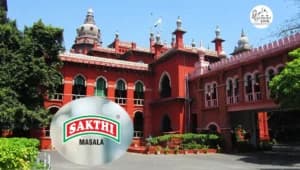In a significant judgment delivered on July 2, the Indian Supreme Court once again clarified that the legal heirs of a person who dies due to his own negligent driving are not eligible to claim compensation under the Motor Vehicles Act, 1988.
A bench of Justices PS Narasimha and R Mahadevan upheld the order of the Karnataka High Court which had earlier dismissed the compensation claim filed by the family members of a man named N.S. Ravisha. Ravisha died in a car accident when he was driving a Fiat Linea car at high speed and negligently. The car overturned, leading to his death.
His wife, son and parents had filed a compensation claim of Rs 80 lakh before the Motor Accidents Claims Tribunal (MACT) at Arsikere under Section 166 of the Motor Vehicles Act. However, the tribunal dismissed the plea and held Ravisha as the tortfeasor, which means he was responsible for the accident due to his own actions.
Read also: Why did the Supreme Court Grant Anticipatory Bail to Tamil Nadu MLA Jegan Murthy in Minor Kidnapping
The family then approached the Karnataka High Court challenging the tribunal’s decision. However, the high court dismissed their appeal. It relied heavily on the Supreme Court’s precedent in Ningamma and others v. United India Insurance Company Limited, (2009) 13 SCC 710, where it held that:
“As the accident was caused by the deceased’s own rash and negligent driving and he himself was the tortfeasor, the legal heirs cannot claim any compensation for his death, otherwise it would amount to the offender getting compensation for his own wrongdoings.”
The appellants argued that since Ravisha was not the owner of the vehicle and had merely borrowed it, the insurance company should still be held liable. However, the high court rejected this argument as well. Citing an earlier Supreme Court judgment in Mehta v. Balkrishna Nayan, (1977) 2 SCC 441, the Court clarified:
“When the deceased borrows a vehicle from its owner, he effectively takes the place of the owner. Therefore, any negligence on his part while driving the vehicle makes him liable as if he himself were the owner.”
Thus, the insurance company cannot be compelled to pay compensation for the death of the borrower caused by its own negligence.
Read also: Why did the Supreme Court Suspend Kiran Kumar's Sentence in Vismaya Dowry Death Case?
Agreeing with this view, the Supreme Court found no merit in the appeal and refused to interfere with the High Court judgment.
The bench said, “The claim was rightly dismissed, as awarding compensation in such cases would mean allowing a person to benefit from his own wrongdoing.”
Case Title: G. NAGARATHNA & ORS. VERSUS G. MANJUNATHA & ANR.















